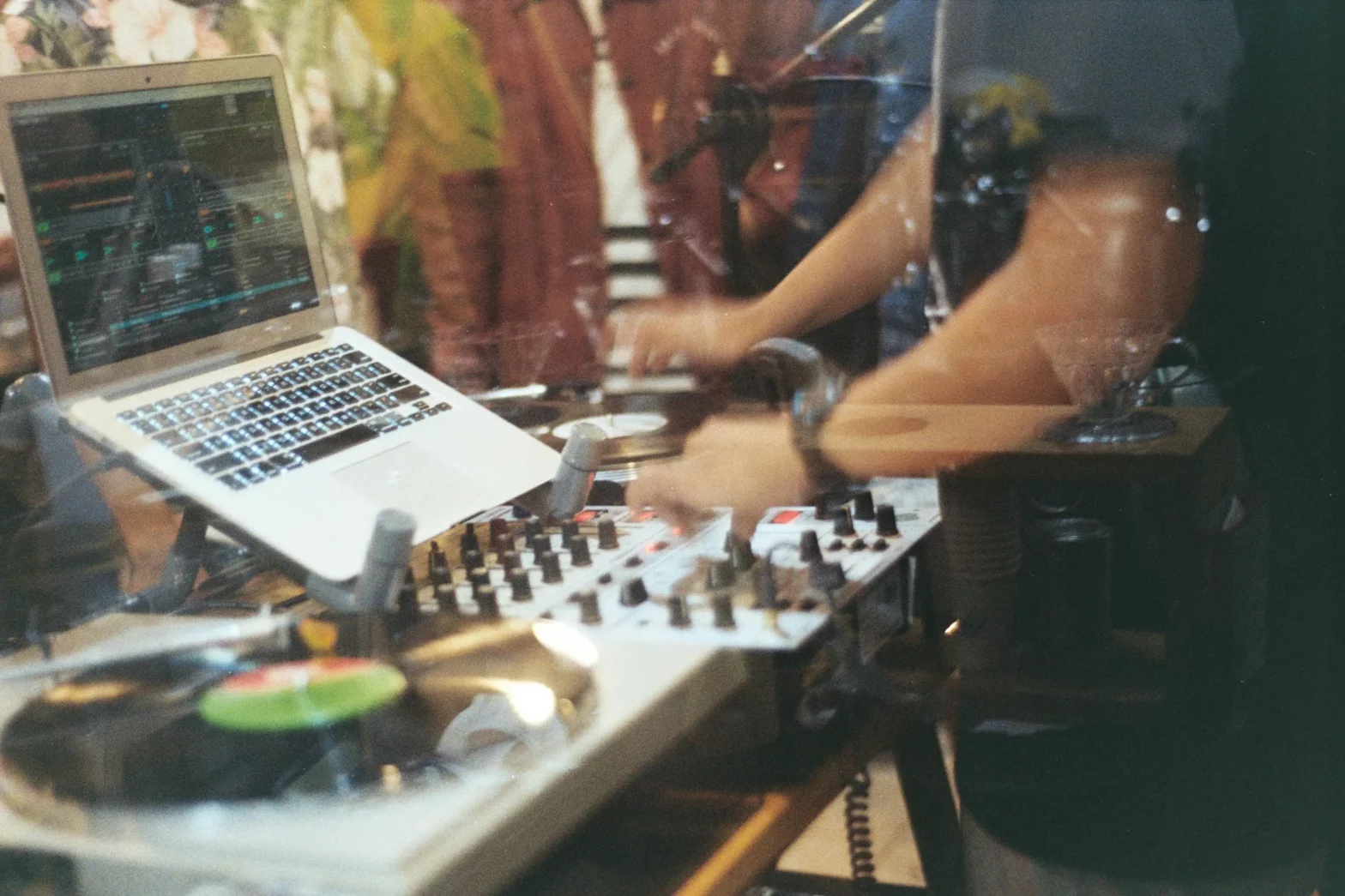Table of Contents
The world of music and music production is vast and extensive. It can be quite daunting for a novice musician to navigate but don’t you worry, we’re here to help! Do you want to dive into the world of music production? Are you confused about what equipment you should buy? We’ve curated a list of Essential Music Production Equipment for Beginners! It’s got everything you need to get you started on your musical journey!
Why is Music Production Equipment Important?
Proper production gear is essential for achieving high-quality music production. The right equipment not only ensures that the sounds you create and capture are clear and professional but also enhances your workflow and creative process. High-quality microphones and audio interfaces guarantee accurate sound reproduction, while reliable studio monitors and headphones allow you to hear and adjust the finer details of your mix. Additionally, the right software and virtual instruments expand your sonic palette and streamline your production tasks. Ultimately, investing in proper production gear is crucial for translating your artistic vision into polished, professional tracks that stand out in a competitive industry.
Physical Equipment:
1. Computer
This may seem like common knowledge but don’t overlook it. A computer is extremely important to own because without it, it will be extremely difficult to produce music. You should consider buying a computer with a strong processing speed.
2. MIDI Controller
A MIDI controller is a type of input device that allows you to control musical hardware or software in a similar way to using a mouse or keyboard to control your computer/ laptop. One of the most common forms of MIDI controllers is keyboard controllers, which mimic the look and feel of traditional piano keyboards. For beginners, grid controllers such as Novation Launchpad are a great way to start learning about how to use MIDI Controllers.
3. Headphones/ Speakers
For listening to the progress of your work, you should consider buying Studio headphones or speakers. These are designed specially for professional music production and help in tuning and mixing tracks as effectively as possible.
4. Audio Interface
An audio interface is used to convert signals from microphones and instruments into a digital format that your computer can easily process. They are also used to amplify the sounds of the audio form. A few options of budget friendly interfaces are:
- Scarlett Focusrite Solo
- PreSonus Studio 24c
- Mackie Onyx Artist 1.2
- U-Phoria UMC22
5. Studio recording microphone
A Studio recording microphone is an essential investment because it allows one to capture different sounds and subsequently convert it into a digital signal. They are usually wired and fixed into position in a recording booth.
6. Instruments
Having an instrument you can play can help with your recording and creative process. For example, a piano, guitar or percussion instrument is the perfect fit for your studio set-up.
Audio Software
1. Digital Audio Workstation (DAW)
The DAW is the central software for recording, editing, and producing music. Each DAW has unique features and workflows, so choose one that fits your style. Some of the most popular DAWs are:
- Ableton Live: Known for its intuitive interface and powerful live performance capabilities.
- FL Studio: Favoured by electronic music producers for its pattern-based workflow.
- Logic Pro X: Apple’s flagship DAW, known for its robust features and user-friendly interface.
- Pro Tools: Industry standard for professional recording and mixing.
2. Virtual Instruments and Plugins
Virtual instruments and plugins expand your sonic palette and enhance your productions. These can include synthesisers, samplers, drum machines, and effects plugins. Some essential plugins include:
- Native Instruments Komplete: A comprehensive collection of instruments and effects.
- Spectrasonics Omnisphere: A versatile software synthesiser.
- Waves Bundle: A suite of professional-grade effects plugins.
3. Sample Libraries
High-quality sample libraries provide pre-recorded sounds and loops that you can incorporate into your music. Some popular sample libraries include:
- Splice Sounds: A subscription-based service offering a vast library of samples.
- Loopmasters: Offers a wide range of genre-specific sample packs.
- Native Instruments Kontakt: A powerful sampler with numerous libraries available.
Workspace Equipment
1. Desk and Chair
A comfortable and ergonomic desk and chair are vital for long production sessions. Ensure your desk has enough space for your computer, monitors, and other equipment. An adjustable chair with good lumbar support can help prevent fatigue and discomfort.
2. Acoustic Treatment
Proper acoustic treatment is crucial for an accurate listening environment. This includes bass traps, acoustic panels, and diffusers. Acoustic treatment helps to minimise reflections, standing waves, and other acoustic issues in your room.
3. Cables and Stands
Quality cables and sturdy stands are essential for connecting and positioning your equipment. Invest in good XLR and TRS cables to avoid signal loss and interference. Microphone stands, monitor stands, and keyboard stands help to organise your workspace efficiently.
4. Power Supply and Surge Protection
Ensure your studio equipment is protected from power surges and electrical noise. A good power conditioner or surge protector can safeguard your gear and provide clean power.
5. Lighting
Good lighting is often overlooked but is essential for creating a comfortable working environment. Consider adjustable LED lights to reduce eye strain and create a conducive atmosphere for creativity.
Setting up a music production studio requires a combination of physical equipment, audio software, and workspace optimization. Investing in high-quality gear and software tailored to your needs will enhance your creativity and productivity. Whether you’re just starting or looking to upgrade, this guide provides a comprehensive overview of the essential equipment needed for music production. Happy producing!
Frequently Asked Questions:
- Is producing music hard?
Producing music can be challenging because it involves a blend of technical skills, creativity, and an understanding of various equipment and software. Learning to use digital audio workstations (DAWs), mastering sound design, and achieving professional-quality mixes take time and practice. However, with dedication, persistence, and the right resources, the process becomes more manageable and highly rewarding, allowing you to bring your musical ideas to life.
- How can I get feedback on my music production?
You can get feedback on music production by sharing your work on online forums, joining music production communities, participating in peer review groups, or seeking input from experienced producers and mentors.
- What skills are essential for music production?
Essential skills for music production include sound design, mixing, mastering, proficiency with digital audio workstations (DAWs), musical theory knowledge, creativity, and an understanding of audio engineering principles.
- How important is formal training in music production?
Formal training in music production can be very beneficial for learning technical skills and industry standards, but it is not essential. Many successful producers are self-taught and have developed their skills through practice, experimentation, and online resources.

